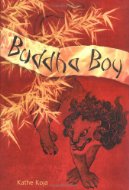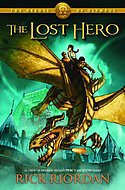 Schwartz, Ellen. Avalanche Dance. Toronto: Tundra Books, 2010. Print.
Schwartz, Ellen. Avalanche Dance. Toronto: Tundra Books, 2010. Print.[Book cover credit: librarything.com/work/9679604]
Booktalk:
Gwen has always been a dancer, flitting about through her childhood making up movements. She's always known that she will always be a dancer, but her dream is to become a choreographer. The three-week Dancemakers workshop in the city would give her everything she'd need to realize that dream. But it's expensive and it's far away from the tiny mountain town that she lives in with her family. Her father doesn't want her to go. When their argument about the workshop is cut short by a late spring avalanche, Gwen could lose so much more than her dream to be a choreographer. She could lose the ability to dance, or even walk, at all. And she could lose her father.
Review:
Following the avalanche, Gwen isolates herself entirely. She feels responsible, and she doesn't feel like she can tell anyone. This is partly because she's had a major falling out with her best friend (of forever), Molly, over Molly's new found fascination with alcohol and pot (and yes, these are 13yr olds).
Even though there are some more mature issues brought up in this book, particularly the drinking and substance abuse, Avalanche Dance never lost that tweener feel. Though both girls are dealing with things that they shouldn't have to deal with until they are older (the possible loss of a parent, drug abuse), they both still handle it like the 13 year olds that they are. That said, this is not a book for every 9-12 year old. The parties Molly attends are important to the story and her actions there are described in detail. And her post-Gwen friends are much more hard-core than she is. But more than Molly's actions (which are never portrayed preachily), the way that Gwen links her own actions to her father's injuries might be too much for some younger readers. Knowing very little about avalanches, it was very easy for me to think, like Gwen, that if she hadn't argued with her father, they both would have made it home from their impromptu ski trip just fine.* Clearly the way that Gwen deals with these feelings of guilt is not ideal, but I completely understood why she felt the way that she did. The cause and effect is so much more believable than your average misplaced guilt about a parents’ divorce or something similar.
Told in their alternating viewpoints, Avalanche Dance is really about Gwen and Molly’s relationship to each other. Throughout the book, both Molly and Gwen reflect on the relationship that they used to have, how it fell apart, and how much (if they'd only admit it) they miss it. When Molly is sentenced to community service, to be served at Gwen's house, the two are forced to face each other and their problems. This is the real the meat of the story. Molly can see that Gwen is dying inside and Gwen, though still hurt, is very protective of Molly. Even though their friendship is mostly seen in the girls’ memories, this qualifies as another great girl friendship book. Even when neither wants to talk to the other, I loved the way that they miss and worry about each other.
For the readers who want a book about a dancer:
I always go into fiction books and movies about dancers very warily,** especially those about kids and teens dancing. I'm not delusional enough to think that my experiences as a very committed young dancer are the only experiences that are authentic, but I'm always worried that something will be said or portrayed in a way that will ring so untrue to me that I won't be able to let it go. Things as small as how the ribbons on shoes are tied have ruined what are probably very good stories for me. I braced myself to read Avalanche Dance, waiting as I was reading for something to go wrong. Nothing did. Instead, I was sucked into Gwen's story and Gwen's life.
The way that she dances, with her whole self, and the way she feels about dance, like it is her life force, felt very real to me. They way she grieves over it when she thinks she has to put it aside, also felt heartbreakingly authentic. For example, after Gwen experiences debilitating, but unexplained, pain in her leg, she cuts her hair:
Gwen picked up the scissor. She lifted a hank of hair. Tears rolling down her cheeks, she cut. A clump of hair fell into the sink. She lifted the next piece of hair.I remember that feeling from the first time I got my hair cut without explaining to the hairdresser that my hair needed to be able to be gathered into a ponytail with enough left over to attach a hair piece. It was terrifying. It was also a life changing moment for me: I was no longer a dancer. It's the same for Gwen; that haircut is her proof. But Gwen's story does have an uplifting end. And though Molly is eventually the one who saves her, it's dancing that brings her completely back to herself in the end.
p.57
Book source: Review copy provided by the publisher through the LibraryThing Early Reviewers program.
*Disney has taught me, hopefully among other folks, that yelling on the side of a snowy mountain has clear and immediate consequences.
**That new Black Swan movie? It looks awesome and I'm definitely going to see it, but I'll be watching all the dancing scenes through my fingers. I mean, Natalie Portman as a ballerina I can almost accept (she carries herself well), but how will she do the dancing scenes? They're going to use a double, right? And what about Winona Ryder and Mila Kunis?!? The queens of the all-time slouchers? Are they kidding? They couldn't find any ACTUAL dancers who want to make a break into the movie biz? Really?




